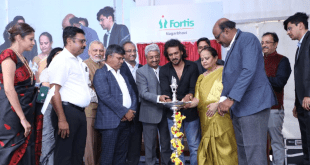150+ stakeholders outlined the role of venture philanthropy in shaping the future of healthcare, education, gender and climate action in India
● Social entrepreneurs, impact investors, CSR professionals and sector experts came together to deliberate on how social impact can be collaboratively scaled up
● The Summit emphasised the importance of public-private partnerships as well as collaborative philanthropy in solving India’s complex social issues
● Participants highlighted how tech-led innovations that are custom built for Bharat can play a big role in accelerating the pace of social change
New Delhi, May 24, 2023: ACT, a non-profit venture philanthropy platform, hosted the first edition of the ACT Summit in New Delhi, where 150+ stakeholders deliberated upon how technology, innovation and collaboration can help India address some of its most complex social issues across public healthcare, gender, education and environment. Ashish Dhawan (The Convergence Foundation), Mohit Bhatnagar (Sequoia Capital), Abhiraj Bhal (Co-Founder, Urban Company), Lathika Pai (Microsoft VC & PE) and Mekin Maheshwari (Udhyam Learning Foundation) were among the speakers.
Aakanksha Gulati, Director – ACT, said, “As ACT, we deeply believe in bringing a diverse set of stakeholders together to help India create social impact at scale. ACT Summit 2023 has been an incredible meeting of minds and ideas and we’re inspired by all the areas of collaboration that have emerged. We look forward to building these pathways further in our quest to catalyse meaningful change for Bharat.”
Key Session Insights:
● Increasing India’s Female Labour Force Participation can be made possible only if gaps in the existing data collection landscape are addressed. Currently, data on 80% of SDG indicators on gender don’t have any sources and while gender-related data is collected in the private sector, it is not published or used.
● Continued dialogue between social entrepreneurs and funders as well as the harnessing of patient capital are important to de-risk investments that are critical for bolstering R&D in healthcare solutions. There is also scope for philanthropy to help address the existing gaps in the healthcare value chain, like diagnostic care.
● Peer-to-peer learning between social entrepreneurs building solutions for climate action and healthcare as well as funders supporting them is imperative. Stakeholders are to : a) align on what success or impact would mean for them, b) facilitate peer-to-peer collaboration to improve outcomes, c) take a long-term approach towards funding and technology development.
● The time is ripe for India to build more Digital Public Goods due to the rapid adoption of sophisticated open-source technology.
● The integration of generative AI into ed-tech is one of the more recent global developments. But while it presents multiple possibilities for the growth of quality, affordable ed-tech, tailoring solutions to the individual and socio-linguistic needs of students is the need of the hour. A robust Open Digital Learning infrastructure can power diverse use cases, translation, and multilingual transliteration.
● Technology has immense potential to achieve scale for social impact but it needs both patient capital and impatient social entrepreneurs to drive it forward. Having a strong mix of traditional as well as impact investors can bring the required amount of capital to enable technology to deliver meaningful social outcomes.
● The role of first generation startup founders is critical to reshape the ‘giving culture’ in India into something that goes beyond just funding and can truly help build the nation.
● Social entrepreneurs are an important part of the social change value chain, given their agility, bias for action and focus on innovation. But that ability to create change can become exponential through collective action.
Across participants, a resounding theme that emerged was that the persistence of social entrepreneurs accompanied by committed capital and the use of technology could pave the way for sustainable social change. Investing in capacity building at an organisational level, challenging conventional wisdom with regards to funding and forming strategic Public Private Partnerships (PPPs) are critical steps required to accelerate the deployment of homegrown innovations and give rise to India’s next generation of social unicorns.
 Newspatrolling.com News cum Content Syndication Portal Online
Newspatrolling.com News cum Content Syndication Portal Online






